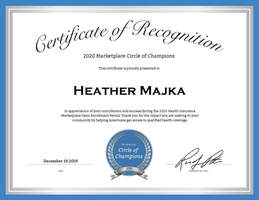|
Retirement saving plays an important role in the U.S. economy. Americans hold more than $18 trillion in private retirement accounts like 401(k)s and IRAs, while defined benefit pensions in the private and public sector hold trillions more. Social Security and Medicare comprise nearly 40 percent of the federal budget. The government also provides tax subsidies for retirement saving, and funds Medicaid, which covers elder long-term care. Yet despite existing research, policymakers do not have access to reliable data when making decisions that affect the retirement security of tens of millions of families. There are many major outstanding questions:
Making effective evidence-based policy requires both a comprehensive understanding of the policy challenge and attendant remedies, as well as the will and ability to implement the necessary reforms. The federal government should commission a large-scale panel survey that, coupled with linked administrative data, provides detailed information on household wealth, labor market, health and demographic data. No current data set provides such information. You can find the full Retirement Security Project at Brookings paper here.
0 Comments
AARP reports thatAmericans are concerned and even afraid for their retirement security. And the news headlines often don’t make them feel better. The latest is a claim from the National institute for Retirement Security that “A plurality of older Americans, 40.2 percent, only receive income from Social Security in retirement.” If true that’s very worrying. But does this frightening factoid hold up?
The NIRS report’s data source is the Census Bureau’s Survey of Income and Program Participation (the SIPP). The SIPP surveys households by asking them a wide variety of questions, including the sources of their income. From the SIPP, NIRS declares that 40.2 percent of retirees receive all of their income from Social Security. And yet, a 2017 study by researchers at the Social Security Administration, also using the SIPP, found that only 19.6% of Americans 65 and over received at least 90% of their total incomes from Social Security. That’s less than half the share of retirees than NIRS claims and SSA measures dependence using a lower bar—90% of total income rather than NIRS’s 100%. Clearly, there’s a conflict. Moreover, a second 2017 study, from two Census Bureau economists, analyzed retirement incomes using IRS tax records, which are more accurate than households’ responses to a survey. The Census Bureau study found that only 12% of Americans aged 65+ received 90% or more of their income from Social Security. Again, it’s not clear how that is compatible with NIRS’s claim that over 40% of retirees receive all their income from Social Security. From a policy perspective, one-fifth of retirees being heavily dependent on Social Security isn’t a huge problem: the poorest fifth of workers are indeed quite poor, and Social Security was designed to provide a retirement benefit for workers who can’t easily save on their own. You can find the full article, including a discussion of why the NIRS data might be wrong, here. According to AARP, one in 3 Tennesseans 67 and older are living on Social Security alone. To find out about poverty and the elderly learn more here. |
This section will not be visible in live published website. Below are your current settings: Current Number Of Columns are = 2 Expand Posts Area = Gap/Space Between Posts = 12px Blog Post Style = card Use of custom card colors instead of default colors = Blog Post Card Background Color = current color Blog Post Card Shadow Color = current color Blog Post Card Border Color = current color Publish the website and visit your blog page to see the results |
|
“We do not offer every plan available in your area. Any information we provide is limited to those plans we do offer in your area. Please contact Medicare.gov or 1-800-MEDICARE to get information on all of your options.”
|










